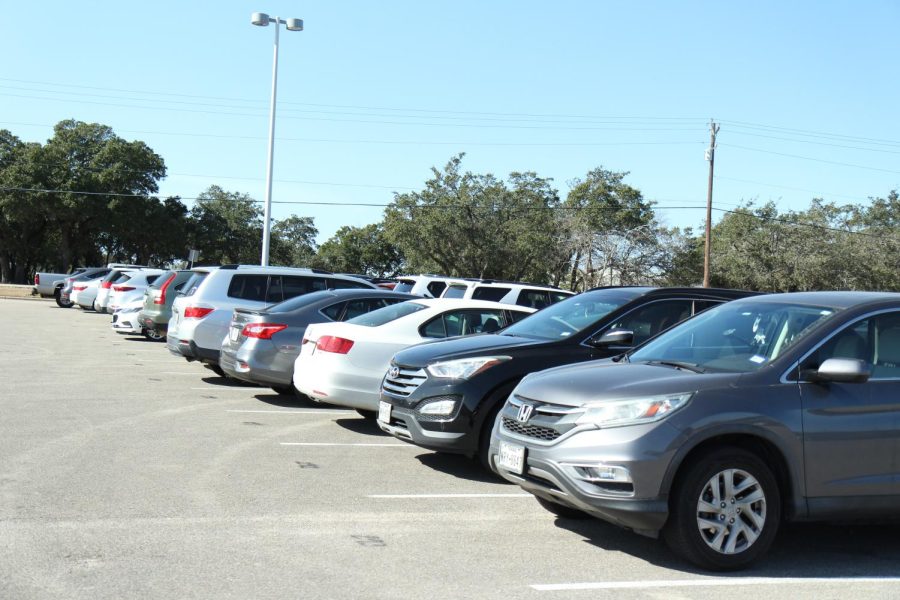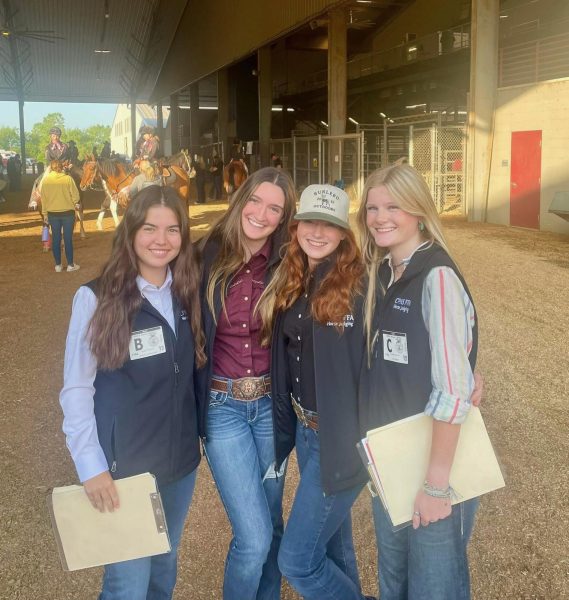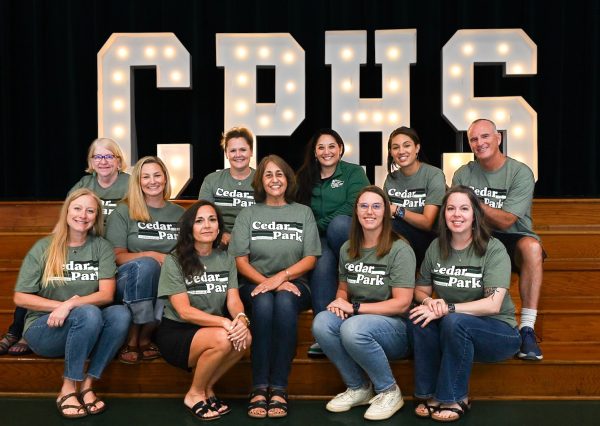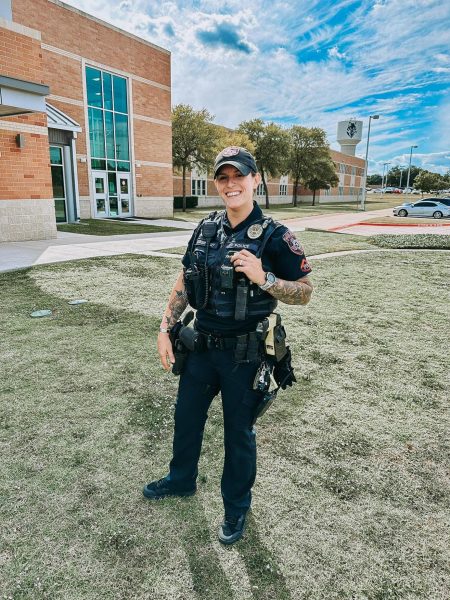To Take the Wheel or Not
Students’ Views on Driving
Driving is something that all students have come to rely on, especially during their senior year. The question of how interested modern teenagers are in driving is now being brought up in multiple studies, however, high school students still recognize and value the importance of driving as a whole, such as senior Jasmin Gonzales. “I think driving is a super important skill because it allows the person to run personal errands or help out others if they need a ride somewhere,” Gonzales said. “I think that is one of the best parts of high school is being able to start driving yourself to school. There’s something so maturing about it.”
January 26, 2022
Grabbing your keys, running out the door and getting in your car, you are finally ready to start yet another day. Most high school students go through this routine at least once. At the age of 16, teenagers can begin learning how to drive. Originally starting off with a permit at 15, teenagers can work their way up and eventually obtain their drivers licenses. Recently, however, there have been debates on whether or not modern day teenagers are actually interested in driving.
According to an article by AutoInc, an official magazine for the Automotive Service Association, over 40% of Gen Z do not have a driver’s license. In addition to this, the article also stated that over 48% of teenagers in the United States aged 16 to 18 do not drive. This is one side of the debate on Gen Z’s relationship with driving.
Senior MJ Kelly, one of the students who hasn’t obtained her driver’s license, said she is neutral toward driving. Kelly said she sees driving as a part of life that she needs to get familiar with. As such, the thought of driving doesn’t excite nor disappoint her, according to Kelly.
“[Driving] doesn’t necessarily excite me, but I am interested in it because I think it’s a skill that I have to know,” Kelly said. “It’s one of those things that, if you want to go anywhere, do anything, be an adult, you should know how to drive. Unless you’re living in New York City.”
However, not all students have a neutral attitude towards driving. Senior Jillian Lach, who has obtained her license, said she finds driving a stressful activity to engage in. Dealing with the constant thought of hurting herself and others is overwhelming, according to Lach.
“I drive a lot, so I find it almost draining, especially if I’m driving alone,” Lach said. “Driving can also be stressful sometimes if I’m driving in an area I don’t know that well. Driving at rush hour, especially when people are rushing home from work, can be really stressful. I don’t want anyone to cause an accident.”
Similarly, senior Saliah Robinson also finds driving stressful. She said worrying about the rules of the road and complying with traffic is the stressful part of driving for her.
“I hate driving because there’s so much risk,” Robinson said. “You can get into an accident and be gone. Also, I usually speed because driving slow is boring, and then I have to worry about cops everywhere I go, so I don’t get pulled over. I just get really bad anxiety when I drive.”
The only risk with not wanting to drive at this point is considering alternative options. In states such as Texas, where public transportation is limited, driving is one of the only available options. Despite this, students such as Lach, said they’ll utilize any other method of transport, from walking to biking, around college to avoid driving.
“I think [when] I’m in college, I’ll probably just try to walk everywhere that I can if it’s not too far,” Lach said. “If it is, I think I’ll try to take the bus or get a bike that I can use. I think even carpooling with other people would be more efficient.”
On the other hand, Gen Z can be very enthusiastic about driving. According to MotorTrends, a magazine that specifically reports on car ownership, Generation Z show more interest in driving than their millennial counterparts. The article states Gen Z favors the convenience of driving.
And for senior Jasmin Gonzales, convenience is the main factor behind her interest in driving. Gonzales said she enjoys the sense of independence she gets from driving.
“I’m interested in driving because it’s fun to listen to music and roll the windows down, or go anywhere at any time,” Gonzales said. “It is convenient that I get to drive myself to school and go run my own errands. I love the independent feeling I get from driving because I can take myself anywhere and I don’t have to be cooped up at the house, which is where I spent all my time during quarantine.”
Furthermore, despite AutoInc’s data on Gen Z’s driver licenses, some students, such as senior Barbara Sylvester, were excited about getting their licenses. Sylvester was one of the students who was quick to get her license and start driving as soon as possible.
“I got my license the day that I turned sixteen,” Sylvester said. “I wanted to get my license so quickly because I kind of associate driving with freedom, so as soon as I got my license, I felt kind of free. I was also really looking forward to being able to drive myself to school because [in] my freshman year, I had to walk to school and walk home, but once I got my license, I was able to just drive myself to school. It made it so I could hang out with my friends much easier because I didn’t have to ask my parents if they could take me. I could just hop in my car and drive myself to their house or something. [Getting my license] was definitely the thing I was looking forward to most when I turned sixteen.”
Additionally, Sylvester said that driving is something all students should at least know. Whether they want to use it or not is up to them, but being familiar with the basics of driving is necessary, according to Sylvester.
“[Driving] will be good in case of emergencies,” Sylvester said. “Personally, I really don’t think students should be fully relying on public transportation. There are always the possibilities of being delayed or not getting off at the right stop or cancellations and what not. Another big issue with relying on public transportation is the price. If you’re using public transportation three or four times a day, then it starts to get a bit pricey.”
Regardless of interest, students still do admit that driving is an important skill. According to Gonzales, driving supports a student’s personal growth by providing the opportunity to being independent and becoming an adult.
“I think driving is a super important skill because it allows the person to run personal errands or help out others if they need a ride somewhere,” Gonzales said. “I think that is one of the best parts of high school is being able to start driving yourself to school. There’s something so maturing about it.”

![Posing with their UIL State Trophy, the Robolobos Van Halen Team beams with excitement after their win. “It was a team effort,” junior Noah Vo said. “I was happy because something happened in the first match and the match was also really close. So [when] they finally revealed it, I was pretty happy.” Photo courtesy of Amy Lovelace](https://cphswolfpack.com/wp-content/uploads/2025/05/IMG_0910-EDIT-1200x723.jpg)
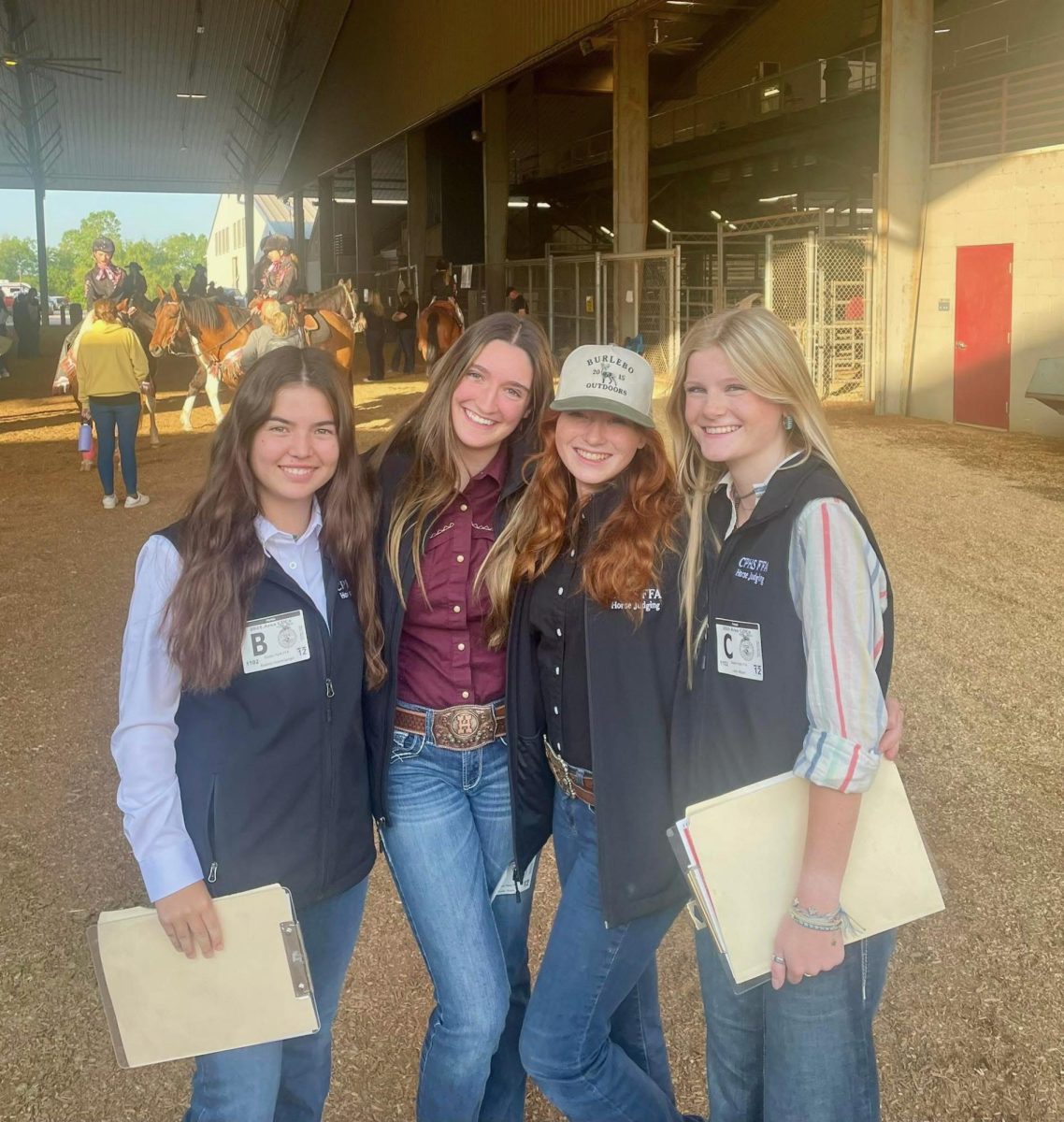
![Broadcast, yearbook and newspaper combined for 66 Interscholastic League Press Conference awards this year. Yearbook won 43, newspaper won 14 and broadcast took home nine. “I think [the ILPC awards] are a great way to give the kids some acknowledgement for all of their hard work,” newspaper and yearbook adviser Paige Hert said. “They typically spend the year covering everyone else’s big moments, so it’s really cool for them to be celebrated so many times and in so many different ways.”](https://cphswolfpack.com/wp-content/uploads/2025/05/edited-ILPC.jpg)











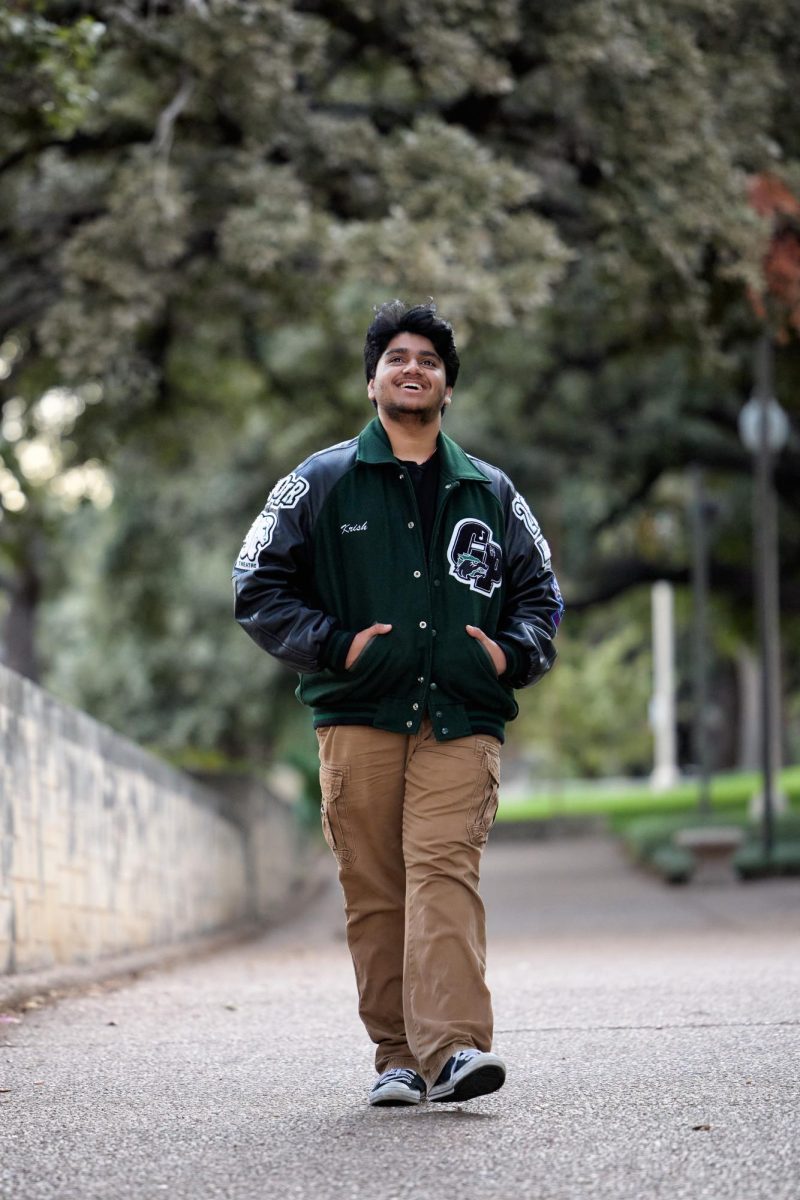

![Bringing her arm over her head and taking a quick breath, junior Lauren Lucas swims the final laps of the 500 freestyle at the regionals swimming competition on date. Lucas broke the school’s 18-year-old record for the 500 freestyle at regionals and again at state with a time of 4:58.63. “I’d had my eye on that 500 record since my freshman year, so I was really excited to see if I could get it at regionals or districts,” Lucas said. “ State is always a really fun experience and medaling for the first time was really great. It was a very very tight race, [so] I was a bit surprised [that I medaled]. [There were] a lot of fast girls at the meet in general, [and] it was like a dogfight back and forth, back and forth.” Photo by Kaydence Wilkinson](https://cphswolfpack.com/wp-content/uploads/2025/03/Kaydence-2.7-23-edit-2.jpg)
![As the support team sits and poses for a photo in the cafeteria with the counseling team they eagerly wait to start their day. "We [all] seem to be a team, I get up every day and there's days where I don't want to go to work today, but I'm thankful that I have a job and I'm blessed to have what I have," Christopherson said. Photo Courtesy of Julie Weltens.](https://cphswolfpack.com/wp-content/uploads/2025/01/AF9E8470-10D7-4C91-BF28-EC8F86BAB66C-1200x852.jpeg)
![Officer Stephanie Cash is in her second year as an SRO at CPHS. “Seeing [students] grow over the years has been kind of cool,” Officer Cash said. “Freshmen that [are] all over the place and then in the next couple of years get a little more squared away and go to class and do work and start thinking about the future. Being a part of a student's growth is the best way to measure my success as an SRO.” Photo Courtesy of Cedar Park Police Department's PIO, Alicia Gallagher.](https://cphswolfpack.com/wp-content/uploads/2024/12/CPHS-SRO-900x1200.jpg)



![Taking a breath as he raises his arm up and out of the water, sophomore Kaden Padilla swims the 500 freestyle at the UIL state meet on Feb. 21-22. Padilla placed 10th overall and second in the consolation final in the event, dropping two seconds. “My family was there, so being able to drop time for them was really special,” Padilla said. “It was awesome [finding out I advanced to the consolation finals]. I wasn’t expecting it, and I was very surprised. My parents being there definitely made me a lot happier knowing they got to see me swim in finals.” Photo by Skyler King.](https://cphswolfpack.com/wp-content/uploads/2025/03/kaden-padilla.jpg)

![Three defenders try to stop senior point guard Hope Edwards before the ball leaves her hands. The girls basketball team faced Liberty Hill on Feb 21, losing 58-40. “[My season was] definitely bittersweet,” Edwards said. It's definitely sad [because] I'm gonna miss all my teammates, my coaches and just the whole CP environment.”](https://cphswolfpack.com/wp-content/uploads/2025/03/julia-128-1200x800.jpg)













